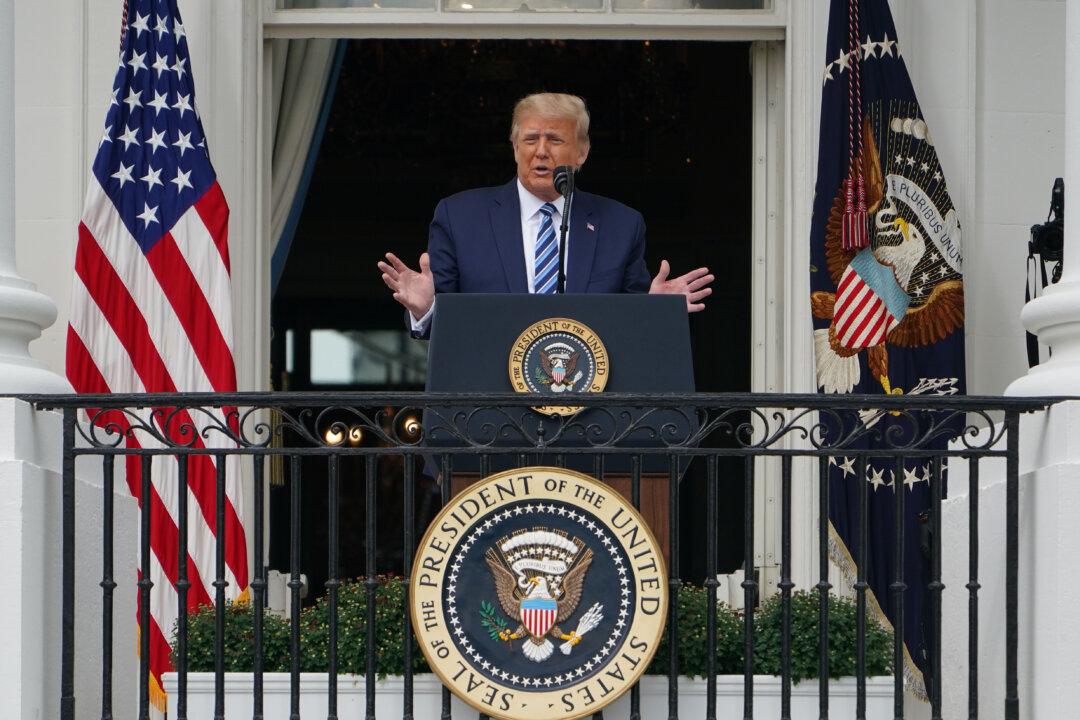President Donald Trump said he wants Congress to work on a pandemic stimulus package in the midst of hearings for Judge Amy Coney Barrett to the Supreme Court.
The president asserted that Republicans on the Judiciary Committee are “giving the Democrats a great deal of time” to talk, adding that it is “not mandated.”





